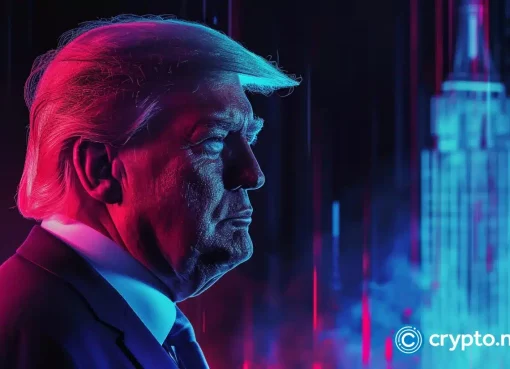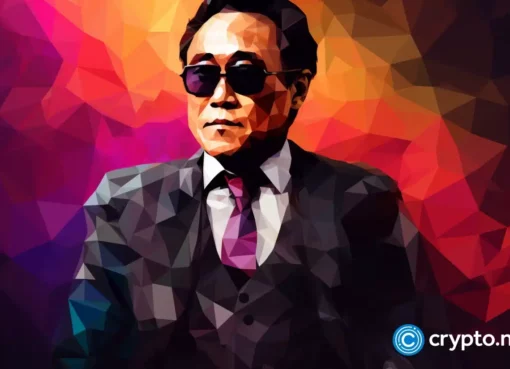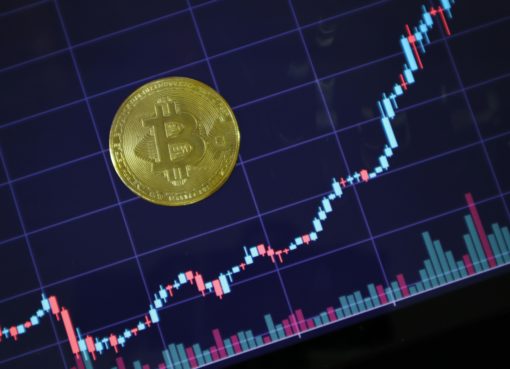The nonfungible token (NFT) space is arguably one of the most popular aspects of crypto and blockchain technology. Indeed, NFTs are often the topic of conversation, garnering significant interest both from inside and outside the industry.
Such is the growing appeal of NFTs outside the crypto space that major brands like Visa and Budweiser are now acquiring popular items from popular collections. These moves are different from the usual corporate interactions with nonfungible tokens that often involve creating their own digital goods.
As is often the case with crypto and blockchain matters, significant adoption from major legacy players triggers a FOMO-driven frenzy. Several NFT collections have seen massive price floor raises as other collectors hop into the trend.
Beyond the current hype, some crypto proponents say NFTs offer more than memetic appeal and can be the “killer app” for Web 3.0. If such assertions prove true, then nonfungible tokens could be a conduit for gamified investments in the emerging decentralized web, becoming the focal point of the next iteration of the internet similar to how e-commerce and social media have dominated the current cyberspace.
Visa buys Crypto Punk
On Aug. 23, Visa announced that it had purchased Crypto Punk #7610 for 49.50 Ether (ETH) — about $149,939 at the time of writing. The news arguably caused a stir in the crypto space and even beyond with several CryptoPunks getting snapped up by wealthy buyers keen to get in on the action.
CryptoPunks is among a league of “OG” NFTs from 2017, long before the current hype surrounding nonfungible tokens. Created by Larva Labs back in June 2017, the collection contains 10,000 pixelated images measuring 24-by-24 pixels set in the 8-bit pixel art style.
Punks have been hailed as being the inspiration for the ERC-721 token standard for NFTs and the precursor to blockchain-based generative art.
Upon the initial release, Crypto Punks were available for free to interested collectors. With NFTs gaining in popularity since 2020, the vintage (at least by nonfungible token standard) collection has become increasingly sought after.
According to the Larva Labs website, the cheapest CryptoPunk available for purchase is priced at 119 ETH (about $400,000). Several owners reportedly delisted their Punks in the wake of the Visa purchase amid a wave of fresh interest following the news.
As of the time of writing, the 30-day trading volume for CryptoPunks has crossed over half a billion dollars. CryptoPunks trading activity is over half of the NFT volume recorded in August.
Chinese internet billionaires have also jumped on the train, acquiring CryptoPunks for huge sums of money.
These days, premium NFTs like CryptoPunks seem to have become a status symbol akin to the Lamborghini fascination of crypto’s earlier days. It is now common to see celebrities from inside and outside the crypto world sporting popular NFTs as their profile pictures on social media accounts.
NFT adoption and corporate brand management
Detailing the reason for its CryptoPunks purchase, Visa’s crypto chief Cuy Sheffield stated, “To help our clients and partners participate, we need a first-hand understanding of the infrastructure requirements for a global brand to purchase, store, and leverage an NFT.” While corporate NFT adoption is not a new phenomenon, actually buying an NFT rather than launching a digital collection based on a company’s offerings makes Visa’s move significantly novel.
Related: Clever user makes $80K profit in CryptoPunk ‘smash and grab’
Jesse Johnson, founder and chief operating officer of Aavegotchi creator Pixelcraft Studios, told Cryptox that Visa’s foray into the NFT space is only “the tip of the iceberg.”
“The market is going to increasingly see brands, organizations and businesses embrace NFTs over the coming months and years. It will start as a new way to connect with customers but eventually evolve entire industries.”
Johnson told Cryptox that NFT popularity will drive entire industries to re-examine and realign their incentives with their customers.
According to Christian Ferri, co-founder and CEO of NFTPro, a company that provides NFT market guidance to global brands like Prada and Lamborghini, corporate interest in nonfungible tokens covers investments and marketing, as well as driving increased brand engagement among the younger demographics.
Speaking to Cryptox, Ferri said that the current hype around expensive NFT collectibles will subside, stating:
“As the market turns, most if not all NFTs not tied to a high-status, the high-equity name will drop in value considerably, if not disappear. This dynamic will reset the attention on a new scale of digital worth, where NFT buyers will seek and demand digital authentic products from known names that, on wide consensus, carry a higher, more predictable weight.”
There is already growing NFT interest in the corporate world with several major brands looking to establish a presence in the market. Social media giant Facebook has stated that NFTs will be part of its digital asset wallet service Novi.
Reports from China say Bytedance, the parent company of the popular social media platform TikTok might also be mulling an NFT foray. Bytedance founder Zhang Yiming reportedly stated the company’s planned NFT venture in a WeChat NFT group on Aug. 26.
NFTs, gamified investments and Web 3.0
With NFTs becoming the conduit for digital ownership, some commentators have begun to highlight the gamified investment potential of nonfungible tokens, especially within the context of the emerging decentralized web architecture. In some ways, NFTs are perhaps shaping up to embody the transformation brought on by e-commerce and social media in today’s cyberspace.
According to Ferris, “NFTs will be the backbone for the third wave of commerce, or virtual commerce.” From digital avatars to virtual and augmented reality (VR/AR), gaming and metaverses, NFTs are being tipped to permeate several layers of the evolving digital matrix.
This increased penetration also brings up discussions about possible interactions with major pillars of the digital world like e-commerce and social media. Indeed, some companies are already looking to develop infrastructure that will exist at the intersection of NFTs and social media, gaming and e-commerce among others.
Related: Ready Player Earn: Where NFT gaming and the virtual economy coincide
“NFTs are empowering real ownership of digital items that can often be used as utilities,” Johnson told Cryptox, adding:
“Businesses can utilize NFTs for many different uses, but the biggest of all is gaming. The ‘play-to-earn’ aspect of NFTs will be revolutionary in the coming years. Through this transitioning from static digital collectibles to tokens, real utility is created and will lead to the next generation of NFTs, especially as more companies and corporations get involved.”
Indeed, play-to-earn gaming has become a major component of the NFT space with titles like Axie Infinity commanding the attention of players across the globe. The growing popularity of play-to-earn NFT games is displaying the possibilities that may lie at the intersection of gaming, blockchain, and the virtual economy.
Speaking to Cryptox earlier in August, Jenny Q. Ta, founder of blockchain-based social media platform CoinLinked, remarked that NFTs could be the missing link in the quest to disintermediate the internet. According to Ta, NFTs will facilitate content ownership in Web 3.0, creating a whole new virtual economy.
Ta’s CoinLinked was recently acquired by NFT aggregator platform HODL Assets. Following the acquisition, HODL Assets is looking to launch its NFT marketplace service that will also combine e-commerce and social media features.




